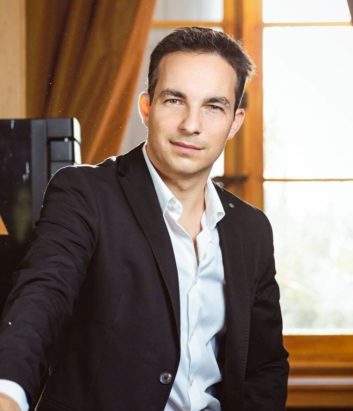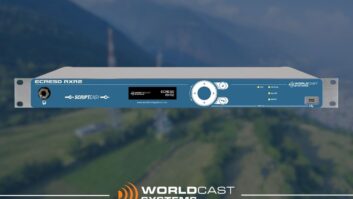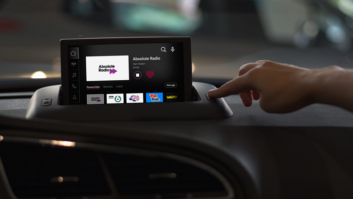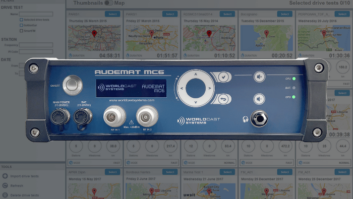 Gregory Mercier is director of product marketing and pre/post-sales support for WorldCast Systems and co-designer of its new sound processor line. Radio World spoke to him as part of our recent ebook about trends in audio processing.
Gregory Mercier is director of product marketing and pre/post-sales support for WorldCast Systems and co-designer of its new sound processor line. Radio World spoke to him as part of our recent ebook about trends in audio processing.
Radio World: What’s notable in processing from your viewpoint right now?
Gregory Mercier: WorldCast Systems’ new five-band sound processor (Version 2) for FM broadcasting, with an integration into our Ecreso FM transmitter lines. It provides powerful processing algorithms, presets, adjustment capabilities, high loudness for those looking for it, and an unrivalled signal clarity.
RW: How do you view differences in processing needs for various OTA and non-broadcast platforms?
Mercier: The audio needs to be adapted to each broadcasting format and to the reception conditions. Each format has its own specificities.
Here are a few examples. Digital broadcasting usually implies lossy audio compression, which will unlikely sound good with heavy clipping. In FM however, there is a 15 kHz filtering and pre-emphasis and the loudness may change the reception quality.
Only with these basic examples can we clearly understand the need for specific final processing to ensure the station’s sonic signature through all the formats.
RW: What is the impact of the cloud, virtualization and SaaS?
Mercier: In the context of the pandemic crisis, we have observed with our customers the growing importance of reducing their operating costs, or more precisely, it has now become a priority.
Reducing op-ex is not a new topic at all for broadcasters; however, the market was traditionally conservative and tended to refrain from software innovations. With the crisis, we have seen a shift in customer mindset with, for example, an increasing demand for solutions based on software licenses.
Based on this new service model, our five-band sound processor is being met with a lot of success. Other WorldCast examples I could mention: SmartFM is a software license for FM transmitters to reduce energy consumption by up to 40%. APTmpX is a software license for APT codecs enabling high-quality MPX/composite transport over IP while saving bandwidth (under 900 kbps) and removing the need for on-site processors. KYBIO Media, offered as an SaaS license, is for centralized and scalable system remote monitoring and control.
RW: What recently introduced features or capabilities in processors are notable?
Mercier: A major innovation is the way we integrated the processing in the broadcasting chain. With the five-band sound processor, the algorithms run inside the transmitter’s FM direct-to-channel digital modulator. There is no additional board inside the device and no cabling, and the result is a huge simplification of the traditional chain. From audio input to RF output, our robust DSP/FPGA platform provides unprecedented control of the signal and its purity while reducing hardware, consumption and maintenance costs, which is more than ever the challenge for radios.
Recently, we also launched SmartFM, our “green” innovation capable of predicting the listeners’ perceived quality in the field and reducing transmitter energy consumption by up to 40%. Program content characteristics, including its processing, obviously plays a role in SmartFM. Our customers’ feedback is that they are improving their audio while considerably reducing operating costs.







